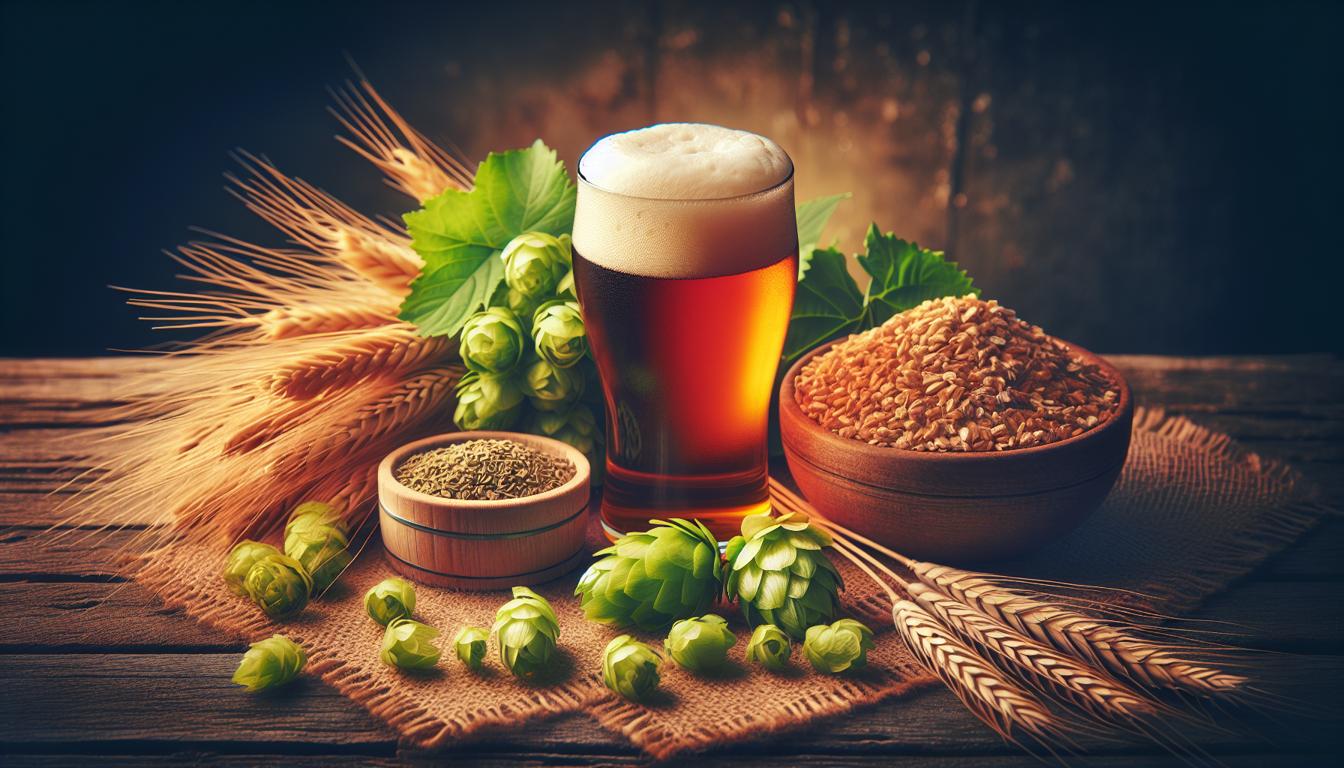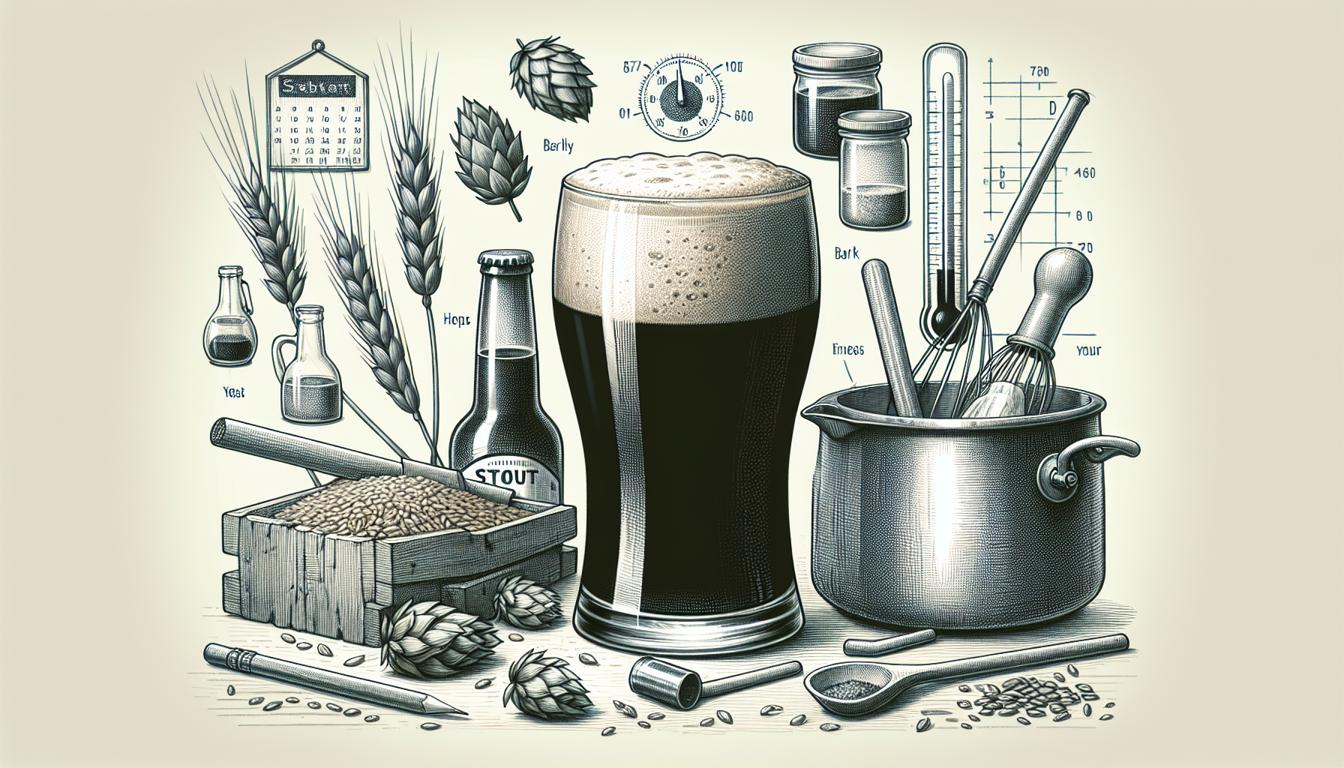Welcome to another exciting exploration of the world of brewing. Today, we’ll be tackling an interesting question that’s been on the minds of many cider enthusiasts: Can you use champagne yeast for cider?
The short answer is, yes, you can use champagne yeast for cider. However, the choice of yeast can significantly impact the final taste, aroma, and overall quality of your cider.
As such, it’s crucial to understand the implications of using champagne yeast, its benefits, and potential drawbacks. So, grab a cup of cider and let’s delve in!
Understanding Yeast and Its Role in Cider Making
Before we dive into the specifics of using champagne yeast, it’s important to understand the role of yeast in cider making. Yeast plays a crucial role in fermentation, which is the process of breaking down sugar into alcohol and carbon dioxide.
There are different types of yeast, and the one you choose can greatly affect the character of your cider. While some yeast strains produce a sweeter cider, others can give you a drier, more tart finish.
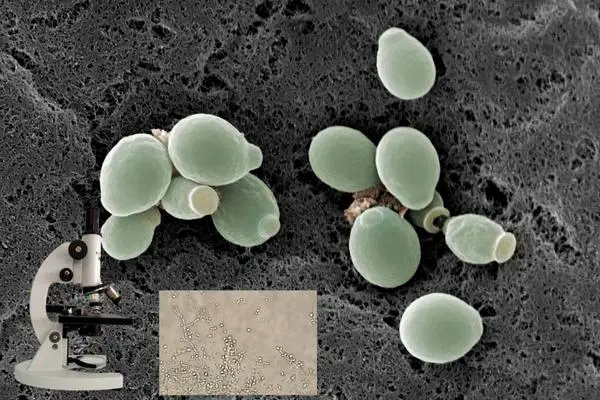
Champagne yeast, known scientifically as Saccharomyces bayanus, is a popular choice due to its ability to produce a clean, sharp, and refreshing cider.
What is the difference between champagne yeast and cider yeast?
Champagne yeast and cider yeast are both strains of yeast used for fermentation, but they have different characteristics and are best suited for specific purposes.
Champagne yeast is known for its ability to tolerate high alcohol levels, making it ideal for fermenting wines and other high-alcohol beverages. It can produce a clean and crisp flavor profile, with high carbonation levels.
On the other hand, cider yeast is specifically formulated for fermenting apple juice and other fruit juices to produce cider. It typically enhances the fruity and estery flavors in the final product, creating a more complex and aromatic cider.
In summary, while both yeasts are used for fermentation, champagne yeast is better suited for high-alcohol beverages, while cider yeast is tailored for producing flavorful ciders.
The Appeal of Champagne Yeast
Champagne yeast is often used in cider making because it offers strong fermentation and is highly tolerant to alcohol. This makes it capable of consuming most, if not all, of the natural sugars present in the juice, resulting in a drier cider.
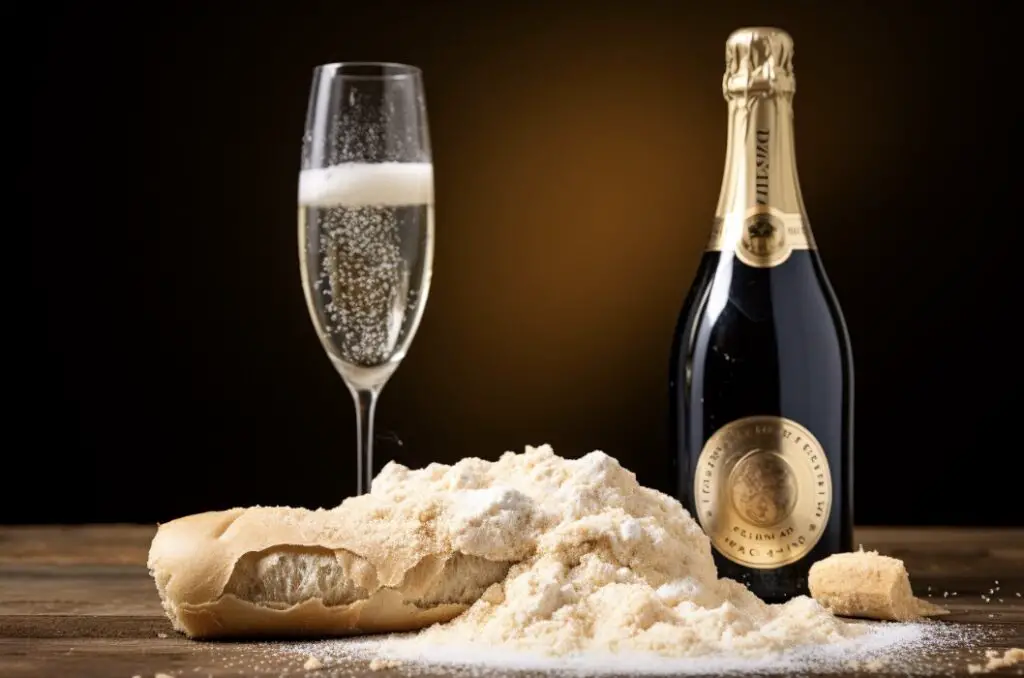
In addition, champagne yeast ferments at a steady, predictable rate, making it a reliable choice for novice and experienced cider makers alike. It also tends to produce fewer off-flavors compared to other types of yeast, ensuring a clean, crisp taste in the final product.
The Downside of Champagne Yeast
While champagne yeast has its merits, it’s also worth noting its potential drawbacks. The most obvious one is it can strip away some of the apple flavor, leading to a less fruity, more wine-like cider. This might not be an issue if you prefer a dry, crisp cider, but if you’re after a sweeter, more apple-forward beverage, champagne yeast might not be your best bet.
Moreover, champagne yeast can be a little too efficient, speeding through the fermentation process and possibly leaving little room for the nuanced flavors to develop. This can result in a cider that’s less complex in flavor profile.
Alternative Yeast Strains for Cider Making
If the characteristics of champagne yeast don’t align with your cider-making goals, there are several other yeast strains to consider.

Ale yeast, for instance, is another popular choice. It ferments at a slower rate and preserves more of the apple flavor, resulting in a sweeter, fruitier cider.
Wine yeast is another option that can produce a range of flavors depending on the specific strain used.
Making the Decision: Champagne Yeast or Not?
Deciding whether to use champagne yeast for your cider depends on your personal preferences and the kind of cider you want to produce.
If you’re after a dry, crisp, and clean cider with a wine-like quality, champagne yeast is a solid choice. However, if you prefer a sweeter, more apple-forward cider with a more complex flavor profile, you might want to consider other yeast strains.
Experimentation is Key
The beauty of cider making, like any other form of brewing, is the room for experimentation. Don’t be afraid to try different yeast strains and see how they affect the final product. You can even try blending yeasts to achieve a unique flavor profile. Remember, the goal is to produce a cider that you love and enjoy, so have fun with it!
Conclusion
So, can you use champagne yeast for cider? Absolutely. But remember, the choice of yeast will significantly influence the final product. Champagne yeast offers strong, reliable fermentation and a dry, clean finish, but it might compromise the apple flavor and complexity of the cider.
As with any brewing endeavor, experimentation is key. Don’t be afraid to try different yeast strains and find the one that caters to your taste buds. Happy brewing!
10 Key Facts About Using Champagne Yeast for Cider:
1. Champagne yeast can be used for making cider.
2. Yeast plays a vital role in the fermentation process of cider making.
3. Champagne yeast is known for its ability to produce a clean, sharp, and refreshing cider.
4. It offers strong fermentation and is highly tolerant to alcohol, making it a reliable choice.
5. Champagne yeast is capable of consuming most of the natural sugars in the juice, resulting in a drier cider.
6. However, champagne yeast can strip away some of the apple flavor, leading to a less fruity, more wine-like cider.
7. The efficiency of champagne yeast can result in a cider that’s less complex in flavor profile.
8. There are several alternative yeast strains to consider for different cider characteristics, like ale yeast and wine yeast.
9. The decision to use champagne yeast for cider depends on your personal preferences and the kind of cider you want to produce.
10. Experimentation is key in cider making, so don’t be afraid to try different yeast strains and find your favorite.
FAQs
How much champagne yeast for cider?
The amount of champagne yeast to use for cider depends on the desired fermentation characteristics and the volume of cider being produced. As a general guideline, you can use approximately 1-2 grams of champagne yeast per gallon (3.8 liters) of cider. However, it’s always recommended to follow the instructions provided by the yeast manufacturer or consult a cider-making resource for more precise recommendations based on your specific recipe and preferences.
Is champagne yeast good for cider?
Yes, champagne yeast can be a good choice for making cider. Champagne yeast is known for its ability to ferment sugars completely, resulting in a dry and crisp finished product. It can enhance the flavors and aromas of the cider while providing a clean and reliable fermentation. However, the choice of yeast ultimately depends on the desired flavor profile and style of cider you wish to create.
Can you use champagne yeast to make cider?
Yes, champagne yeast can be used to make cider. Champagne yeast is known for its ability to ferment at high sugar levels and produce a clean, crisp flavor profile. It can enhance the fermentation process and contribute to a more effervescent cider with a higher alcohol content.
How much champagne yeast to add to cider?
The amount of champagne yeast to add to cider depends on various factors, including the desired fermentation speed and flavor profile. As a general guideline, you can add approximately 1-2 grams of champagne yeast per gallon of cider. However, it’s always recommended to follow the instructions provided by the yeast manufacturer or consult a cider-making expert for precise measurements based on your specific cider recipe and goals.
Can I use champagne yeast for cider?
Yes, you can use champagne yeast for cider. Champagne yeast is commonly used in cider making due to its ability to ferment sugars efficiently and produce a clean, crisp flavor profile. It can help achieve a dry and sparkling cider similar to champagne.

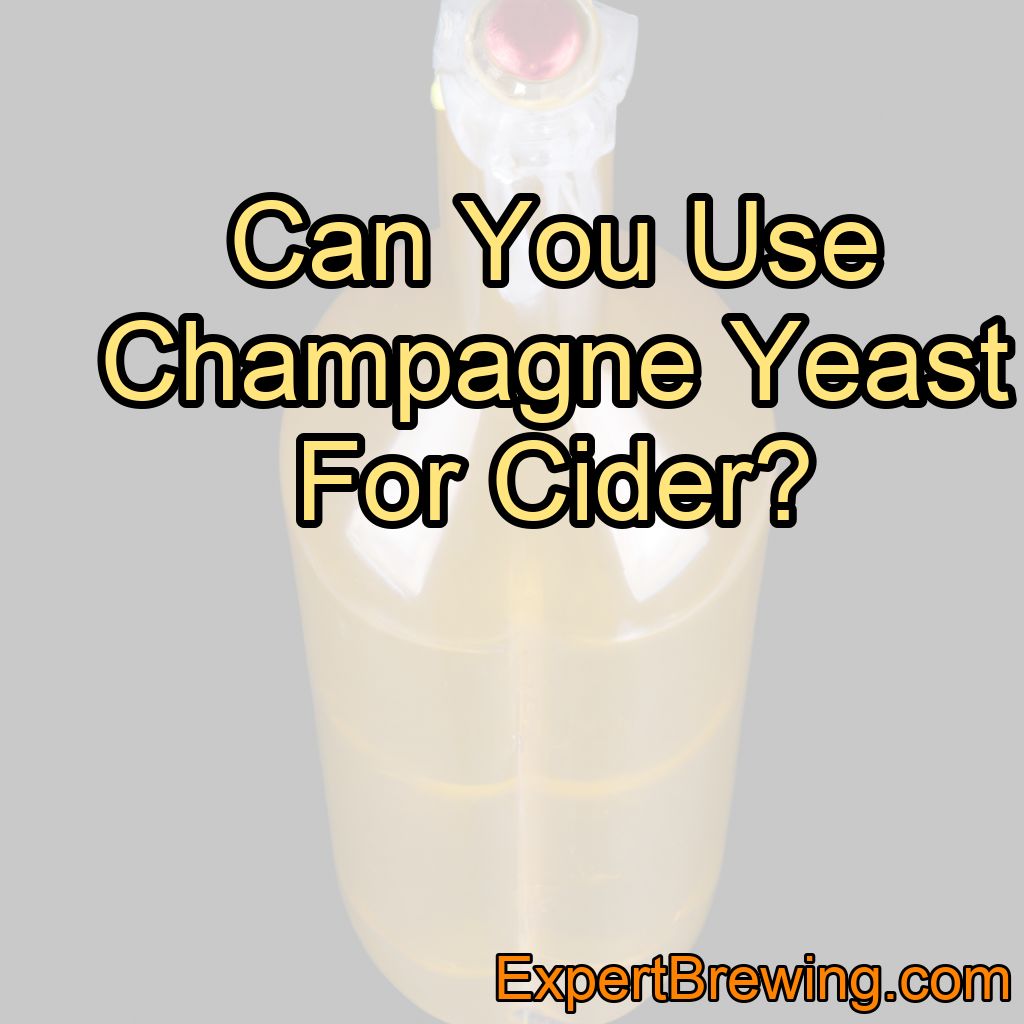
-recipe.jpg)
